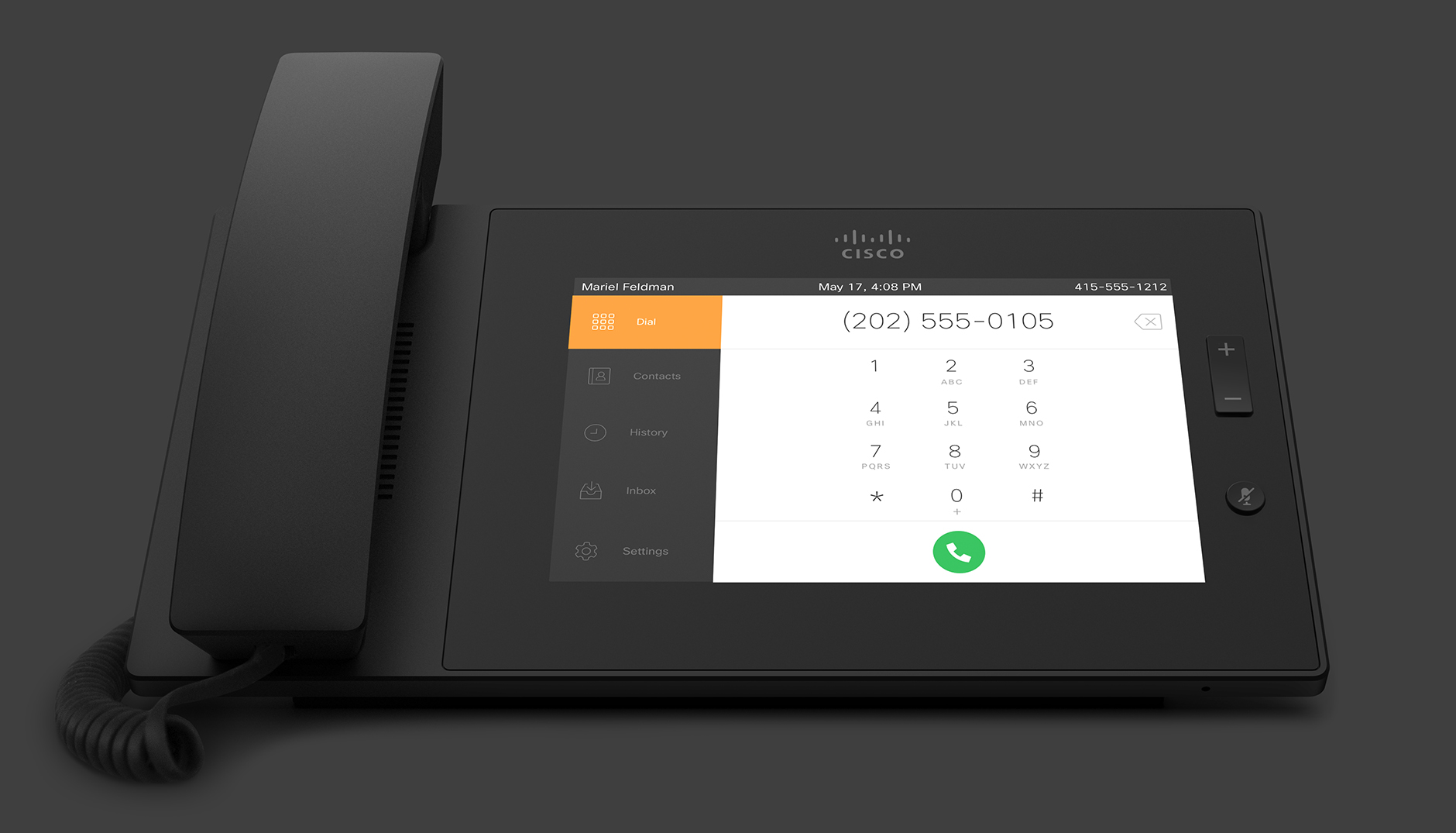Cisco’s wholly owned cloud division Meraki appeared to stray into its parent company’s traditional territory when it launched a cloud managed telephone last year.
Launched in May 2016, the MC74 SIP telephone is a straightforward plug and play touchscreen desk phone which runs on Meraki’s one-system-for-everything cloud management platform. Configuration, call set up, call control and PSTN access is all handled by the Meraki Cloud, with the same user interface as all other Meraki Cloud products.
Meraki, which Cisco purchased in 2012, has previously focused on cloud solutions for connectivity, mobile and security, selling its own cameras, wireless access points and security devices which all plug into the same management platform.
Questions have been asked about the sudden crossover into traditional Cisco UC/telephony territory. What value is Cisco adding to its business with yet another SIP phone, and who will it reach? Moreover, is there not a risk of muddying the water for Cisco’s existing own brand cloud voice solution, Spark?
Integrated Solutions for SMEs
It is worth noting that Meraki enjoys a degree of independence within the Cisco company hierarchy. It is designated as an ‘innovation centre’ with licence to pursue innovative new solutions for its target audiences. Those audiences sit squarely within the SME community, smaller businesses without the resources or expertise to deploy sophisticated IT and telecommunications systems, who are instead looking for simple, reliable solutions that deliver what they promise on the tin.
The Meraki Cloud range very much fits this bill. With a single dashboard to navigate, all of its hardware products offer plug and play accessibility and are very simple to manage and maintain. There is no software to install on premises, no updates, no configuration. End users can plug in as many devices as they need, making scaling up with business growth cheap and straightforward.
For existing Meraki Cloud customers, adding a SIP telephone option makes perfect sense. The MC74 is not going to tempt clients already using a Cisco desktop telephone or UC software product to switch over, but that is not the point. Meraki Cloud Voice is for Meraki Cloud users who want all the benefits of a SIP phone straight out of the box and managed on a platform they are familiar with.
No Competition
It is doubtful that anyone at Cisco or Meraki views the MC74 as a competitor to Spark. First and foremost, Meraki Voice is an addition to a portfolio of cloud based IT solutions which has 140,000 customers of its own. This is the immediate target audience for Meraki Voice, followed by new customers who are looking at the whole Meraki Cloud package, not just the voice solution.
Spark is a standalone UCaaS solution in its own right; Meraki Voice is effectively a plug in for a wider cloud management stack. The MC74 is the hardware that goes with it.
In that sense, Cisco is simply doing what all successful companies do with their product development – anticipating demand amongst different markets, and reaching out to as many potential customers as possible.
Have you got any other examples of telecoms businesses which have marketed very similar products or solutions at different audiences? Was it a success or not? Are you a Meraki Cloud user, and if so, what do you make of the launch of a voice option? Let us know your thoughts in the comments section below, and share this article with friends and colleagues to get them involved as well.







